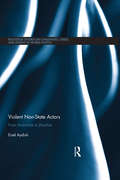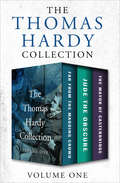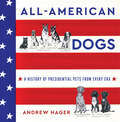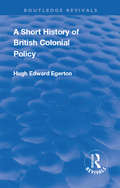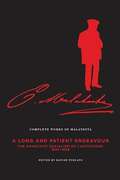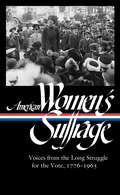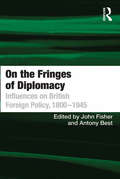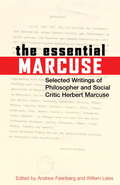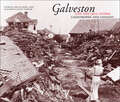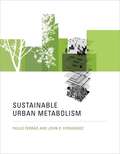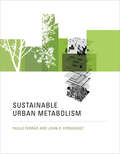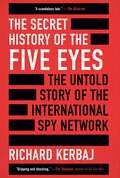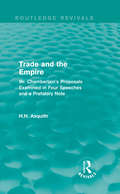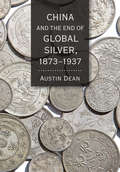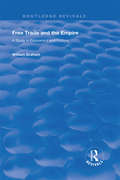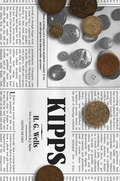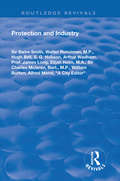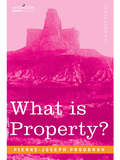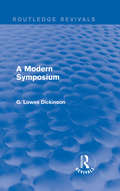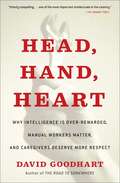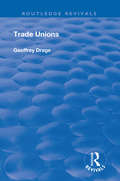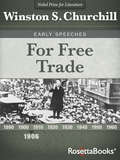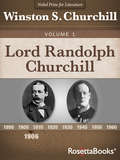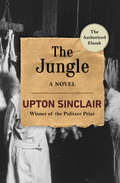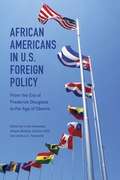- Table View
- List View
Violent Non-State Actors: From Anarchists to Jihadists (Routledge Studies on Challenges, Crises and Dissent in World Politics)
by Ersel AydinliGiven the importance of violent non-state actors (VNSA) and their evolving role in global politics, dynamic frameworks of analysis are needed both to trace historical trajectories in the evolution of violent non-state actorness and to identify emerging patterns by examining modern day cases. This book examines the defining characteristics and evolutionary dynamics of VNSAs, and introduces a framework based on their autonomy, representation and influence providing a comparative analysis of the late 19th and early 20th centuries’ Anarchist movement and the modern-day Jihadist network. It explores the distinct characteristics of the Anarchists and Jihadists as VNSAs with global potential, not just describing them, but also seeking to understand what they are instances of. With a longitudinal analysis, the book also considers the types of changes that have occurred in the past 150 years and the possible role VNSAs may play in current and future power polity shifts away from states toward non-state actors. It concludes with both theoretical implications for the study of non-state actors and transnational relations, and practical implications for government agencies or private groups tasked with finding ways of countering such violent non-state actors. This important book will be of interest to students and scholars of international relations, political science, and terrorism/security studies. It will also be of interest to practitioners in the security services including think-tank analysts and government security analysts.
The Thomas Hardy Collection Volume One: Far from the Madding Crowd, Jude the Obscure, and The Mayor of Casterbridge
by Thomas HardyThree classics of the Victorian era from the great novelist. This volume includes three iconic novels by the author known for chronicling nineteenth-century English society. Far from the Madding Crowd: A tale of love, tragedy, and a woman brave enough to defy convention. Jude the Obscure: A young stonemason who had aspired to a career in academia finds himself trapped in an unhappy marriage in this novel of passion and heartbreak. The Mayor of Casterbridge: A wealthy mayor harbors a terrible secret in this story of addiction, love, and regret.
All-American Dogs: A History of Presidential Pets from Every Era
by Andrew HagerFrom historian-in-residence at the Presidential Pet Museum, Andrew Hager, comes a fond, fascinating, and often surprising look at the dogs who were the best friends of the presidents, featuring unforgettable photographs.President Biden’s German shepherds, Major and the late Champ, are the latest in a long line of presidential dogs. Dating all the way back to George Washington, dogs have been constant companions to nearly all of America’s presidents. Of the past 46 presidents, 31 have had at least one dog at 1600 Pennsylvania Ave.Organized by historical eras, All-American Dogs will take readers through the captivating history of the White House’s four-legged friends, the impact they had on their owner-in-chiefs, and, ultimately, American history. From the assassination of President’s Lincoln’s dog after Lincoln’s own death to President’s Hoover’s Belgian shepherd, King Tut, who helped President Hoover win the election after appearing in a campaign photo, these furry members of the first family often had a lasting impact on the administrations that kept them.As historian-in-residence at the Presidential Pet Museum, Andrew Hager will include original research and rare photographs from the National Archives to trace the history of America’s first dogs. From post-Revolutionary dogs, to Civil War era dogs, to Cold War dogs, Hager will show the differences and similarities of how our nation viewed man’s best friend.Readers will learn not only past presidents’ dogs in each historical era, but also the cultural history of dogs as pets, and the ways in which Americans’ relationships with dogs has evolved over the past two centuries.
A Short History of British Colonial Policy (Routledge Revivals)
by Hugh Edward EgertonThis volume discusses a short history of British Colonial policy. With all its faults the book represents much reading and some thought. In writing what is, to some extent, a history of opinion, it has been impossible altogether to suppress my own individual opinions. I trust, however that I have not seemed to attach importance to them. In dealing with the later periods, I remembered Sir Walter Raleigh's remark on the fate which awaits the treatment of contemporary history; but obscurity may claim its compensations, and atleast I am not conscious of having written under the bias of personal or party prejudice.
The Complete Works of Malatesta V.III: The Anarchist Socialism of L'Agitazione, 189798
by Paul Sharkey Errico Malatesta Davide TurcatoThe first in AK Press's ten-volume Complete Works of Malatesta. This one (volume three chronologically) focuses on two very important years in Errico Malatesta's life, when he returned to Italy to edit L'Agitazione. This volume begins the series with a bang.
American Women's Suffrage: Voices from the Long Struggle for the Vote 1776-1965 (The Library of America)
In their own voices, the full story of the women and men who struggled to make American democracy wholeWith a record number of female candidates in the 2020 election and women's rights an increasingly urgent topic in the news, it's crucial that we understand the history that got us where we are now. For the first time, here is the full, definitive story of the movement for voting rights for American women, of every race, told through the voices of the women and men who lived it. Here are the most recognizable figures in the campaign for women's suffrage, like Elizabeth Cady Stanton and Susan B. Anthony, but also the black, Chinese, and American Indian women and men who were not only essential to the movement but expanded its directions and aims. Here, too, are the anti-suffragists who worried about where the country would head if the right to vote were universal. Expertly curated and introduced by scholar Susan Ware, each piece is prefaced by a headnote so that together these 100 selections by over 80 writers tell the full history of the movement--from Abigail Adams to the 1848 Declaration of Sentiments to the ratification of the Nineteenth Amendment in 1920 and the limiting of suffrage under Jim Crow. Importantly, it carries the story to 1965, and the passage of the Voting and Civil Rights Acts, which finally secured suffrage for all American women. Includes writings by Ida B. Wells, Mabel Lee, Margaret Fuller, Sojourner Truth, Frances Ellen Watkins Harper, Frederick Douglass, presidents Grover Cleveland on the anti-suffrage side and Woodrow Wilson urging passage of the Nineteenth Amendment as a wartime measure, Jane Addams, and Charlotte Perkins Gilman, among many others.
On the Fringes of Diplomacy: Influences on British Foreign Policy, 1800–1945
by Antony BestIn recent decades the study of British foreign policy and diplomacy has broadened in focus. No longer is it enough for historians to look at the actions of the elite figures - diplomats and foreign secretaries - in isolation; increasingly the role of their advisers and subordinates, and those on the fringes of the diplomatic world, is recognised as having exerted critical influence on key decisions and policies. This volume gives further impetus to this revelation, honing in on the fringes of British diplomacy through a selection of case studies of individuals who were able to influence policy. By contextualising each study, the volume explores the wider circles in which these individuals moved, exploring the broader issues affecting the processes of foreign policy. Not the least of these is the issue of official mindsets and of networks of influence in Britain and overseas, inculcated, for example, in the leading public schools, at the Universities of Oxford and Cambridge, and in gentlemen's clubs in London's West End. As such the volume contributes to the growing literature on human agency as well as mentalité studies in the history of international relations. Moreover it also highlights related themes which have been insufficiently studied by international historians, for example, the influence that outside groups such as missionaries and the press had on the shaping of foreign policy and the role that strategy, intelligence and the experience of war played in the diplomatic process. Through such an approach the workings of British diplomacy during the high-tide of empire is revealed in new and intriguing ways.
The Essential Marcuse
by Andrew Feenberg William Leiss Herbert MarcuseThe Essential Marcuse provides an overview of Herbert Marcuse's political and philosophical writing over four decades, with excerpts from his major books as well as essays from various academic journals. The most influential radical philosopher of the 1960s, Marcuse's writings are noteworthy for their uncompromising opposition to both capitalism and communism. His words are as relevant to today's society as they were at the time they were written.From the Trade Paperback edition.
Galveston and the 1900 Storm: Catastrophe and Catalyst
by Patricia Bellis Bixel Elizabeth Hayes TurnerSpur Award Nominee: How Galveston, Texas, reinvented itself after historic disaster: “A riveting narrative . . . Absorbing [and] well-illustrated.” —Library JournalThe Galveston storm of 1900 reduced a cosmopolitan and economically vibrant city to a wreckage-strewn wasteland where survivors struggled without shelter, power, potable water, or even the means to summon help. At least 6,000 of the city's 38,000 residents died in the hurricane. Many observers predicted that Galveston would never recover and urged that the island be abandoned. Instead, the citizens of Galveston seized the opportunity, not just to rebuild, but to reinvent the city in a thoughtful, intentional way that reformed its government, gave women a larger role in its public life, and made it less vulnerable to future storms and flooding.This extensively illustrated history tells the full story of the 1900 Storm and its long-term effects. The authors draw on survivors’ accounts to vividly recreate the storm and its aftermath. They describe the work of local relief agencies, aided by Clara Barton and the American Red Cross, and show how their short-term efforts grew into lasting reforms. At the same time, the authors reveal that not all Galvestonians benefited from the city’s rebirth, as African Americans found themselves increasingly shut out from civic participation by Jim Crow segregation laws. As the centennial of the 1900 Storm prompts remembrance and reassessment, this complete account will be essential and fascinating reading for all who seek to understand Galveston’s destruction and rebirth.Runner-up, Spur Award for Best Western Nonfiction—Contemporary, Western Writers Of America
Sustainable Urban Metabolism
by Paulo Ferrão John E. FernándezUrbanization and globalization have shaped the last hundred years. These two dominanttrends are mutually reinforcing: globalization links countries through the networked communicationsof urban hubs. The urban population now generates more than eighty percent of global GDP. Citiesaccount for enormous flows of energy and materials -- inflows of goods and services and outflows ofwaste. Thus urban environmental management critically affects global sustainability. In this book,Paulo Ferrão and John Fernndez offer a metabolic perspective on urban sustainability, viewingthe city as a metabolism, in terms of its exchanges of matter and energy. Their book provides aroadmap to the strategies and tools needed for a scientifically based framework for analyzing andpromoting the sustainability of urban systems. Using the concept of urbanmetabolism as a unifying framework, Ferrão and Fernandez describe a systems-oriented approachthat establishes useful linkages among environmental, economic, social, and technical infrastructureissues. These linkages lead to an integrated information-intensive platform that enablesecologically informed urban planning. After establishing the theoretical background and describingthe diversity of contributing disciplines, the authors sample sustainability approaches and tools,offer an extended study of the urban metabolism of Lisbon, and outline the challenges andopportunities in approaching urban sustainability in both developed and developing countries.
Sustainable Urban Metabolism
by Paulo Ferrao John E. FernandezA unified framework for analyzing urban sustainability in terms of cities' inflows and outflows of matter and energy.Urbanization and globalization have shaped the last hundred years. These two dominant trends are mutually reinforcing: globalization links countries through the networked communications of urban hubs. The urban population now generates more than eighty percent of global GDP. Cities account for enormous flows of energy and materials—inflows of goods and services and outflows of waste. Thus urban environmental management critically affects global sustainability. In this book, Paulo Ferrão and John Fernández offer a metabolic perspective on urban sustainability, viewing the city as a metabolism, in terms of its exchanges of matter and energy. Their book provides a roadmap to the strategies and tools needed for a scientifically based framework for analyzing and promoting the sustainability of urban systems. Using the concept of urban metabolism as a unifying framework, Ferrão and Fernandez describe a systems-oriented approach that establishes useful linkages among environmental, economic, social, and technical infrastructure issues. These linkages lead to an integrated information-intensive platform that enables ecologically informed urban planning. After establishing the theoretical background and describing the diversity of contributing disciplines, the authors sample sustainability approaches and tools, offer an extended study of the urban metabolism of Lisbon, and outline the challenges and opportunities in approaching urban sustainability in both developed and developing countries.
The Secret History of the Five Eyes
by Richard KerbajThis is the definitive account of the Western world’s most powerful—but least known—intelligence alliance, which remains central to the defense of the free world in a dangerously uncertain time.The Five Eyes—a spy network between the intelligence agencies of the US, UK, Canada, Australia and New Zealand—has been steeped in secrecy since its official formation in 1956. Yet the Five Eyes’ very existence is not legally binding—it functions as a marriage of convenience riddled with distrust, competing intelligence agendas and a massive imbalance of power that favours the US.Richard Kerbaj draws on interviews with intelligence officials, world leaders and recently declassified archives to reveal the authoritative but unauthorized stories of the alliance. In bypassing the usual censorship channels, he tells this extraordinary account of the Five Eyes’ unlikely cast of characters who played a crucial role in its history, and exposes the network’s hidden role in influencing global events that continue to shape our daily lives.
Routledge Revivals: Mr. Chamberlain's Proposals Examined in Four Speeches and a Prefatory Note (Routledge Revivals Ser.)
by H.H. AsquithFirst published in 1903, this collects together speeches given by H.H. Asquith to refute the charge that those who defended Free Trade at the turn of the century were ignorant or indifferent to actual and potential economic forces, and also clung to obsolete conceptions of the Empire. The author intends to vindicate Britain’s contemporaneous fiscal system, not as academic dogma, but as a concrete and living financial policy. In pursuit of this he undertakes to expose what he argues are the "blunders of fact and logic" of the new protectionist campaign, illustrated with extracts from the speeches of the Chancellor of the Exchequer Austen Chamberlain — whose advocacy of protectionism provides the focus for the collected speeches.
China and the End of Global Silver, 1873–1937 (Cornell Studies in Money)
by Austin DeanIn the late nineteenth century, as much of the world adopted some variant of the gold standard, China remained the most populous country still using silver. Yet China had no unified national currency; there was not one monetary standard but many. Silver coins circulated alongside chunks of silver and every transaction became an "encounter of wits." China and the End of Global Silver, 1873–1937 focuses on how officials, policy makers, bankers, merchants, academics, and journalists in China and around the world answered a simple question: how should China change its monetary system? Far from a narrow, technical issue, Chinese monetary reform is a dramatic story full of political revolutions, economic depressions, chance, and contingency. As different governments in China attempted to create a unified monetary standard in the late nineteenth and early twentieth century, the United States, England, and Japan tried to shape the direction of Chinese monetary reform for their own benefit. Austin Dean argues convincingly that the Silver Era in world history ended owing to the interaction of imperial competition in East Asia and the state-building projects of different governments in China. When the Nationalist government of China went off the silver standard in 1935, it marked a key moment not just in Chinese history but in world history.
Free Trade and the Empire: A Study in Economics and Politics (Routledge Revivals)
by William Graham Filippo UgoliniOriginally published in 1904. The chief object of this pamphlet is to set forth, in a connected form, the main aspects of the great tariff controversy now for some time before the public; to treat the question more deeply and fully than the exigencies of the platform usually allow; and at the same time to treat it, as far as may be, from a scientific and as little as possible from a party point of view. The question is one both of economics and politics, and it raises the most important and delicate and complicated issues in both subjects.
Kipps: With an introduction by D.J. Taylor
by H.G. Wells'FIRST ELECTRICITY. AND THEN TELEPHONES. I FEEL AS IF I WERE LIVING IN AN H G WELLS NOVEL' DOWAGER COUNTESS OF GRANTHAM'You can enjoy the novel as a jolly yarn about faux pas - there's a bit of Kipps in most of us - but you also sense that Wells found its theme a little close to the bone . . . As social inequality threatens to rise, it's hard not to wonder - despite the happy ending - if Kipps belongs to britain's future as well as its past' GuardianOrphaned at an early age, raised by his aunt and uncle, and apprenticed for seven years to a draper, Artie Kipps is stunned to discover upon reading a newspaper advertisement that he is the grandson of a wealthy gentleman and the inheritor of his fortune. Thrown dramatically into the upper classes, he struggles desperately to learn the etiquette and rules of polite society. But as he soon discovers, becoming a `true gentleman' is neither as easy nor as desirable as it at first appears...
Protection and Industry (Routledge Revivals)
by William Burton Swire Sir Smith Walter M.P. Runciman Hugh Bell S.G. Hobson Arthur Wadham James Prof. Long Elijah M.A. Helm Charles Sir McLaren M.P Bart. Alfred Mond "A City Editor"First published in 1904, this volume emerged during a split within the Liberal Unionist Party over Joseph Chamberlain’s advocacy of Protectionism through Tariff Reform. Having originally broken with the Liberal Party over Home Rule in 1885, 1904 saw some Liberal Unionists return to the Liberal fold. The authors here constitute those departing Liberal Unionists in a multifaceted rallying call for Free Trade in the face of Protectionism. Their articles, on subjects such as Shipping, Agriculture and Engineering, assess the implications of Free Trade with a focus on each author’s specialist industry. The authors unanimously declare in favour of the system under which, they maintain, Great Britain developed unparalleled prosperity and taught other nations her industrial success. In the process, they demonstrate that trade cannot improve whilst fettered and focus on the potential for real improvements through Free Trade.
What is Property?
by Pierre-Joseph ProudhonProudhon's most famous declaration that "property is theft" comes from this, his most famous work, published in French in 1840; the English translation dates from 1890. According to Proudhon, only that which is being used is real property. Land must be lived on or farmed to be property, and goods must have been made by one's own labor to be owned. These new definitions challenge the very basis of capitalist systems, and Proudhon used them as the foundation for his writings in support of anarchy. Activists, historians, and philosophers will find themselves pondering his arguments long after they have finished reading.
A Modern Symposium (Routledge Revivals: Collected Works of G. Lowes Dickinson)
by G. Lowes DickinsonFirst published in 1905, A Modern Symposium presents a record of a discussion between men at the Seekers club- a now extinct, but then famous, club for men prominent in politics or in the professions- that used to meet fortnightly to listen to, and discuss papers on varying subjects. The group included politicians, a professor, a journalist and a poet, amongst others. At this particular meeting, the participants start their discussion by discussing reasons for going into politics in the first place, and why the key speakers aligned themselves with particular political parties, which leads on to a full and thought-provoking discussion of civilisation. "Has been a source of inspiration to many thousands of readers… It is almost an encyclopaedia of common sense." Everyman "One of the most thought-provoking and, therefore, useful books of our time. No one interested in the problems of life, as these are presented to us day by day, can fail to be the wiser and better by a perusal of Professor Lowes Dickinson’s admirable statement of these problems and the hints he gives on their solution." Scottish Educational Journal "A brilliant little book, at once serious and gay, in which various contrasted characters discuss our civilisation." E. M. Forster in The Listener
Head, Hand, Heart: Why Intelligence Is Over-Rewarded, Manual Workers Matter, and Caregivers Deserve More Respect
by David GoodhartA Financial Times Best Book of the Year 2020 A TIMELY AND PROVOCATIVE ARGUMENT FROM LEADING POLITICAL ANALYST DAVID GOODHART ABOUT THE SEVERELY IMBALANCED DISTRIBUTION OF STATUS AND WORK IN WESTERN SOCIETIES.The coronavirus pandemic revealed what we ought to have already known: that nurses, caregivers, supermarket workers, delivery drivers, cleaners, and so many others are essential. Until recently, this work was largely regarded as menial by the same society that now lauds them as heroes. How did we get here? In his groundbreaking follow-up to the bestselling The Road to Somewhere, David Goodhart divides society into people who work with their Heads (cognitive work), with their Hands (manual work), or with their Hearts (caring work), and considers each group&’s changing status and influence. Today, the &“best and the brightest&” trump the &“decent and hardworking.&” Qualities like character, compassion, craft, and physical labor command far less respect in our workforce. This imbalance has led to the disaffection and alienation of millions of people. David Goodhart reveals the untold history behind this disparity and outlines the challenges we face as a result. Cognitive ability has become the gold standard of human esteem, and those in the cognitive class now shape society largely in their own interest. To put it bluntly: smart people have become too powerful. A healthy democratic society respects and rewards a broad range of achievement, and provides meaning and value for people who cannot—or do not want to—achieve in the classroom and professional career market. We must shift our thinking to see all workers as essential, and not just during crises like the coronavirus pandemic. This is the dramatic story of the struggle for status and dignity in the 21st century.
Trade Unions (Routledge Revivals)
by Geoffrey DrageFirst published in 1905, this book offers a perspective on the aims and objectives of British trade unions. It details the history, constitution and aims of the trade union, challenging the misconception that a trade union exists solely to foster strikes, harass employers and hamper industry, and discussing the many positives of such organisations. Designed to be accessible for the general public, this book covers history, organisation, function, action and influence.
For Free Trade (Winston S. Churchill Early Speeches)
by Winston S. ChurchillThis collection of speeches in support of free trade by the future Prime Minister tracks his early rise in British Parliament. Throughout his career—as both a Conservative and a Liberal—Winston Churchill was a strong supporter of free trade. As a Conservative, this position was sometimes controversial; early in his career, Churchill opposed Joseph Chamberlain's strategy of imposing tariffs to protect Britain&’s economic dominance. When he defected to the Liberal Party in 1904, Churchill continued to be a fierce free trade advocate. Originally published in 1906, For Free Trade was an influential political pamphlet that made Churchill&’s speeches on the subject available to the British people. This collection contains speeches delivered in Manchester or The House of Commons between 1902 and 1905.
Lord Randolph Churchill Volume 1 (Lord Randolph Churchill #1)
by Winston S. ChurchillThe first volume of the Nobel Prize-winning Prime Minister&’s biography of his father, the fiery Conservative Party leader of late Victorian Britain. In 1906, Sir Winston Churchill produced a two-volume biography of his father Lord Randolph Churchill, the 19th century Member of Parliament whose political career ended in scandal. This first volume deals with early events in Randolph&’s life, including his upbringing, his education, and his election to the House of Commons as the Conservative MP for Woodstock. This volume also recount&’s Randolph&’s quarrel with the Prince of Wales in a daring gambit to protect the integrity of the Churchill family name. This episode resulted in Churchill&’s temporary exile from British high society, a prequel to his later disgrace. While Winston Churchill is clearly a supporter of his father&’s, he is not afraid to be honest about the mistakes and failures of his career and personal life.
The Jungle: A Novel (The Best Sellers Of 1906 Series)
by Upton SinclairThe classic protest novel that exposed harsh working conditions and unsanitary practices in the meatpacking industry A slaughterhouse worker from Lithuania, Jurgis Rudkus immigrated to turn-of-the-century Chicago believing that he would find freedom and prosperity. Instead, meager wages and a filthy, dangerous workplace drive him deep into debt and despair. Victimized, abused, and utterly alone, Jurgis and his wife, Ona, face a lifetime of never-ending struggle in a merciless urban jungle. An extraordinary work of fiction based in cold, hard fact, The Jungle is one of the most influential novels ever written. Privately published in 1906, it quickly became an international bestseller, inspiring sweeping and essential changes, including the passage of the Pure Food and Drug Act. Powerful and provocative, poignant and horrifying, The Jungle is Upton Sinclair's masterwork. This ebook has been authorized by the estate of Upton Sinclair.
African Americans in U.S. Foreign Policy: From the Era of Frederick Douglass to the Age of Obama
by Linda Heywood Allison Blakely Charles Stith Joshua C. YesnowitzBookended by remarks from African American diplomats Walter C. Carrington and Charles Stith, the essays in this volume use close readings of speeches, letters, historical archives, diaries, and memoirs of policymakers and newly available FBI files to confront much-neglected questions related to race and foreign relations in the United States. Why, for instance, did African Americans profess loyalty and support for the diplomatic initiatives of a nation that undermined their social, political, and economic well-being through racist policies and cultural practices? Other contributions explore African Americans' history in the diplomatic and consular services and the influential roles of cultural ambassadors like Joe Louis and Louis Armstrong. The volume concludes with an analysis of the effects on race and foreign policy in the administration of Barack Obama. Groundbreaking and critical, African Americans in U.S. Foreign Policy expands on the scope and themes of recent collections to offer the most up-to-date scholarship to students in a range of disciplines, including U.S. and African American history, Africana studies, political science, and American studies.
